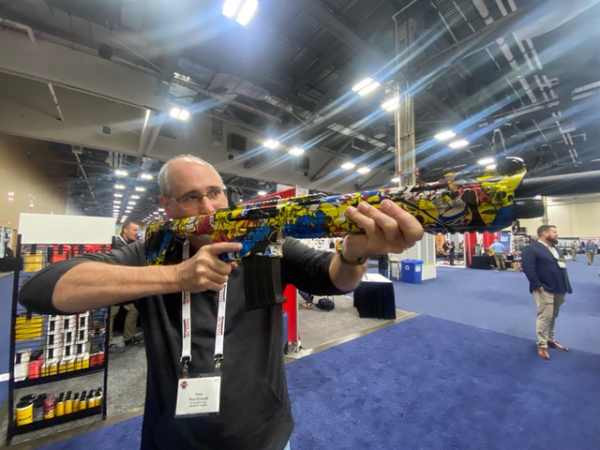An airport lounge conversation doesn’t often serve as an interesting final punctuation for any industry trade show. Waiting to head home after more than a few of them, the normal conversations usually focus on tired feet, aching backs and a brief summation of how the show went for the people talking.
Waiting in Columbus on Friday evening after NASGW, however, my unexpected conversation with a pair of manufacturers’ reps brought a new perspective to the question everyone asks at shows, regardless of the industry: “what are you hearing?”
That question’s usually asked of two groups: manufacturers and people you already know. It’s not often you get to have that conversation with complete strangers. This one was revealing. The pair, I learned, were all commission -paid entirely on sales. And for them, the slowing of the overall industry’s a real concern.
“We are paid to sell products,” one said, “When things slow down, we have to refocus-quickly- on products that retailers can turn. We will encourage them to buy products we think may become harder to get, but our job is to get them products we can all move.”
Honestly, I never considered that aspect of the retail model very seriously before. Having worked in commission sales, it makes perfect sense. Especially in an industry that largely relies on the manufacturer-distributor-retailer model. We’re all familiar with what happens when product dries up -demand and prices rise. If, however, the distribution system clogs with too-much product, demand slows, and money-the lubricant and fuel of the engine of commerce- is constrained in surplus inventory.
The retail response is to try to stimulate sales. They can do that by discounting their pricing, asking for manufacturer incentives, or both. Whatever method they employ, profit is reduced, but the already narrow margins on some products (like guns and ammo) are partially offset by the freeing up of capital already tied into inventory on hand.
The entire industry is concerned. Speaking with Charles Brown and Kara Boesenberg of MKS Supply for QA Outdoors, a solid reason for the distributor and retailer’s concerns I’d not considered before was brought into focus.
While manufacturers sell products into the governmental and military channels, retailers are confined to the consumer segment. The shooting industry, whether you’re talking hunting or recreational shooting, is a hobby market. As Brown pointed out in our conversation, “even though we have a Constitutional right to have firearms; we’re still a hobby market. And all of those have been affected pretty hard.”
That led him to this flat assessment: “until our economy straightens out, I think it’s (the market) going to be pretty flat.”



As owners/managers who saw first-hand how a massive section of their business could be wiped out by an administration hostile to guns, Brown and Bosenberg, are probably more attuned to the vacillations in the world’s political and domestic economic worlds than many. When the Biden administration stopped Russian imports, it essentially wiped out MKS’s Barnaul ammunition business, along with roughly twenty-percent of the total domestic ammunition supply.
We collected plenty of news and new product information last week in Columbus. NASGW’s one of those shows that allows us the luxury of time with manufacturers and their new products.
More on what we learned in the days ahead…and some insight into just what’s behind the Commerce Department’s surprise 90-day suspension of export licenses for civilian firearms and ammunition announced last Friday.
As always, we’ll keep you posted.
—Jim Shepherd